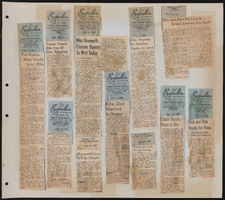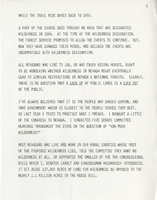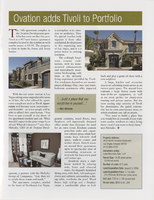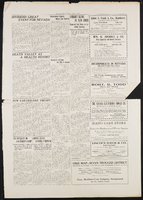Search the Special Collections and Archives Portal
Search Results
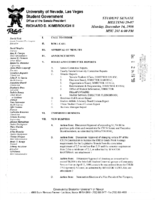
Meeting minutes for Consolidated Student Senate University of Nevada, Las Vegas, December 14, 1998
Date
1998-12-14
Archival Collection
Description
Includes meeting agenda and minutes, along with additional information about senate bills. CSUN Session 29 Meeting Minutes and Agendas.
Text
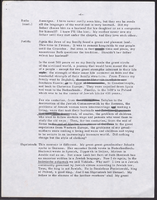
Script for Mothers of Jews, 1964-2006
Date
1964 to 2006
Archival Collection
Description
Typed script titled "Mothers of Jews" with handwritten notes and edits. Script is undated and is located in folder with Jewish Genealogy Society of Southern Nevada newsletter Family Legacies from 1998-2006 .
Text

Meeting minutes for Consolidated Student Senate, University of Nevada, Las Vegas, November 06, 1979
Date
1979-11-06
Archival Collection
Description
Includes meeting agenda and minutes. CSUN Session 9 Meeting Minutes and Agendas.
Text
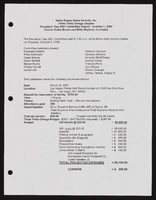
Alpha Kappa Alpha Sorority, Theta Theta Omega Chapter Founders Day committee reports
Date
2000-01-08
2000-01-31
2000-10-07
Archival Collection
Description
From the Alpha Kappa Alpha Sorority, Incorporated, Theta Theta Omega Chapter Records (MS-01014) -- Chapter records file.
Text
Federico Zaragoza (College of Southern Nevada) oral history interview conducted by Magdalena Martinez and Elia Del Carmen Solano-Patricio: transcript
Date
2022-10-21
Archival Collection
Description
From the Lincy Institute "Perspectives from the COVID-19 Pandemic" Oral History Project (MS-01178) -- Education sector interviews file.
Text
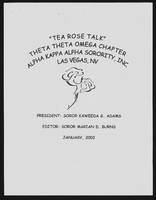
Alpha Kappa Alpha Sorority, Theta Theta Omega Chapter "Tea Rose Talk" newsletters
Date
2002-01
2002-02
Archival Collection
Description
From the Alpha Kappa Alpha Sorority, Incorporated, Theta Theta Omega Chapter Records (MS-01014) -- Chapter records file.
Text
Pagination
Refine my results
Content Type
Creator or Contributor
Subject
Archival Collection
Digital Project
Resource Type
Year
Material Type
Place
Language
Records Classification

